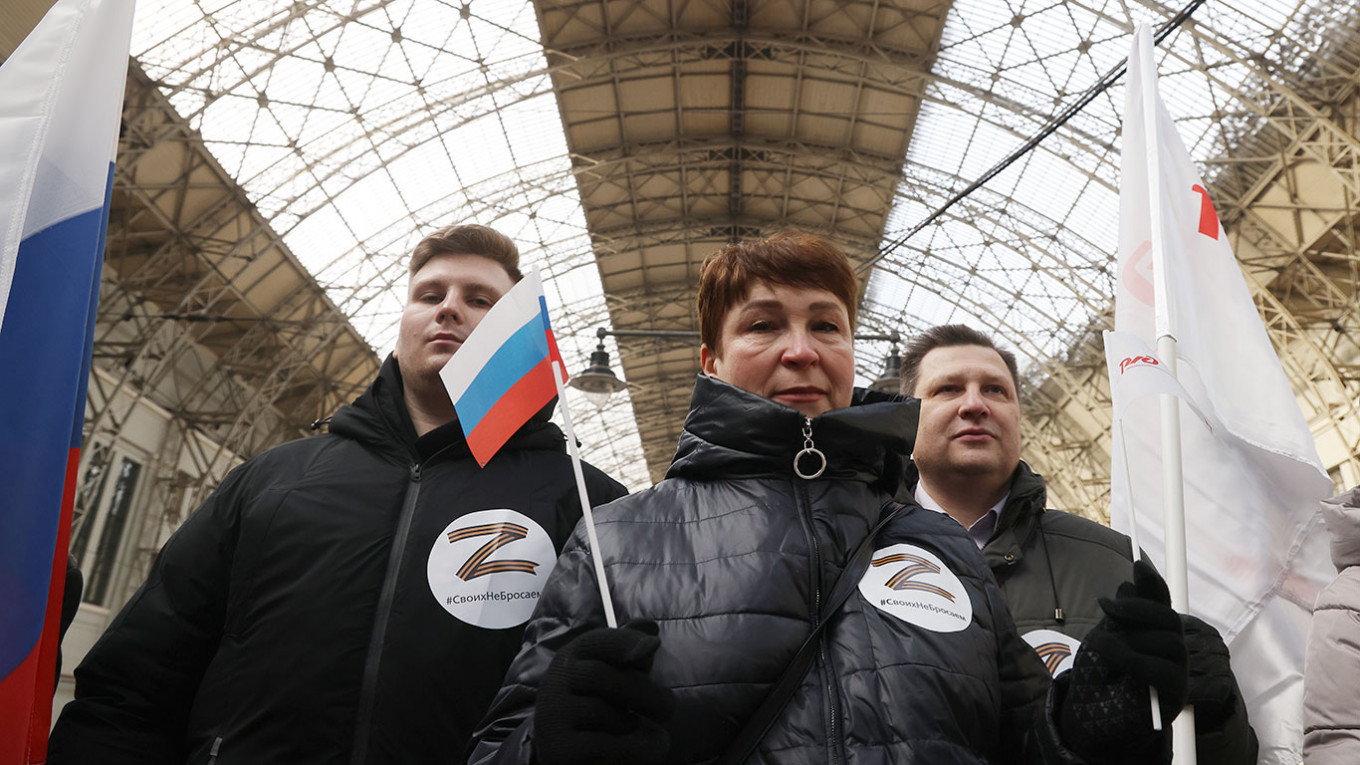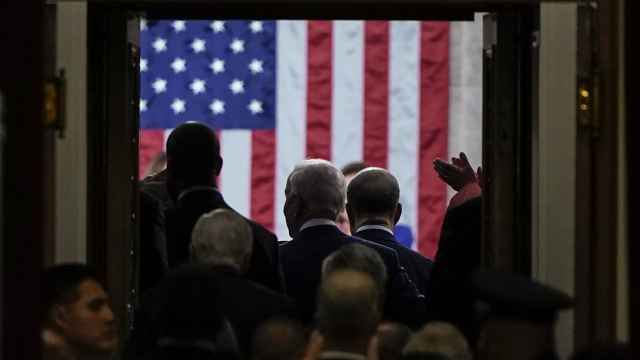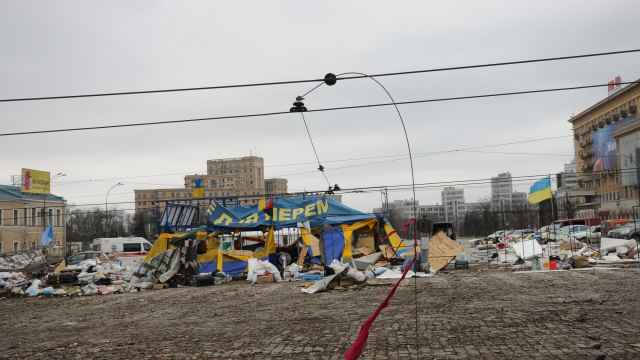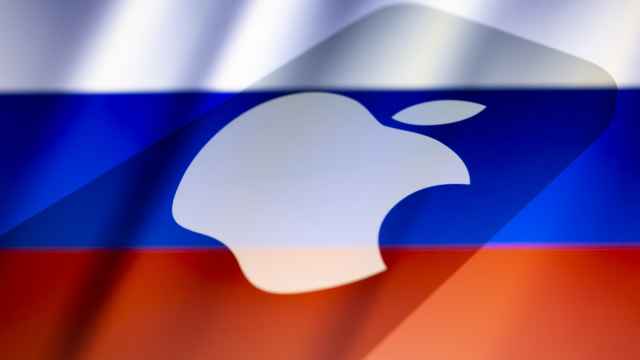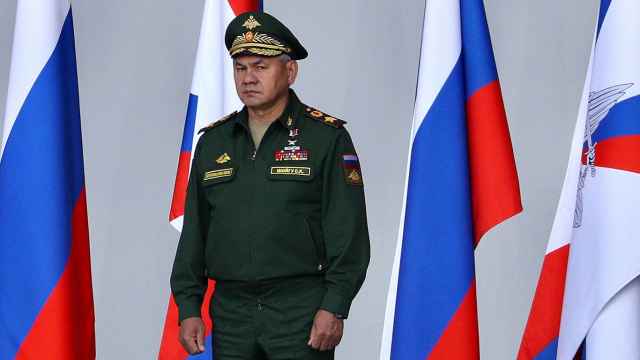Vladimir Miroshnik hasn’t spoken to his father since March 1, a week into Russia’s invasion of Ukraine.
Their relationship, already strained by their opposing political views, reached a breaking point when Vladimir noticed his father becoming increasingly aggressive toward his son’s opposition to the war.
“I stopped speaking to my father because he wouldn’t respond to my arguments against the war, and instead called me a traitor who should be shot first,” Miroshnik, a 25-year-old political science student, told The Moscow Times.
Since Russia launched an offensive on neighboring Ukraine last month, support and opposition to the war has divided Russian households, driving a wedge between friends and family members and exposing stark contrasts in society.
“My desire to leave home is growing everyday,” said one 22-year-old Muscovite who lives with her grandparents and asked not to be named. “Unfortunately, I just don't have enough resources to do that yet.”
Opinions toward the war largely run along generational lines, with older Russians who tend to rely on state media as their main information source more likely to support what the Kremlin has dubbed a “special military operation” in Ukraine.
Russia’s more media-savvy younger generations, in contrast, tend to get their information from social media and independent Telegram channels and are less trustworthy of state media sources.
“The morning the war started, I was in shock,” said Marina, a 22-year old Muscovite living in Riga. “I sent a video of an air raid siren going off in Kyiv to my grandfather. He just replied with a video of Russians singing war songs in Afghanistan, and told me that we had gone to defend the Donbas.”
According to one survey by state pollster VTsIOM, 9 in 10 respondents of retirement or pre-retirement age support the war in Ukraine. Observers link this support to state television, which rarely strays from the Kremlin line that Russia is in Ukraine to "demilitarize and denazify" the country and protect Russian speakers from an alleged "genocide" by Kyiv.
“My father has been getting the news solely from television for more than 20 years, including watching Solovyov and Kiselyov's programs,” Miroshnik said, referring to Russian state television’s two most prominent Kremlin-loyal hosts.
“He quite easily believes in various conspiracy theories. For example, he told me the other day that Ukraine needs to be defeated because the United States is preparing biological weapons on Ukrainian territory to destroy the Russians,” Miroshnik said, pointing to an unfounded claim that Moscow has used to justify the invasion.
State television has been careful to deliver a stream of Kremlin-approved information to its viewership since the invasion began, with words such as “war” and “invasion” off-limits and critics of the Kremlin’s actions branded as “traitors.”
“My family only trusts federal news sources,” the anonymous Muscovite said. “The longer the so-called ‘operation’ lasts, the more radicalization I see in their attitudes toward these events. They already view the deaths of civilians normally, and hate the Ukrainian authorities and wish them death. It reminds me of the two minutes of hate in the book ‘1984’.”
Younger Russians who turn to social media and independent news outlets for information on the war live in a starkly different reality.
According to one anonymous poll taken last week, 39% of 18-24 year olds said they were opposed to the war, with young people also making up a large portion of those who have attended anti-war protests across Russia.
These figures, as political scientist Ilya Matveev points out, are likely to be greater given the mistruths that permeate during wartime as well as many people’s fear of speaking out against the war.
But in the weeks since the invasion began, Russian authorities have blocked Western social media platforms Twitter, Instagram and Facebook — and President Vladimir Putin signed a law criminalizing what authorities describe as as "fake" information about the military.
All of Russia’s embattled independent media outlets are also blocked or closed down over their war coverage — with the exception of Novaya Gazeta, which has chosen not to directly report on the war to avoid being blocked.
As a result, even those who do not solely rely on state television have few places left to turn for news on the war.
Despite Russia's unprecedented crackdown on information, experts say the Ukrainian side is winning the “information war” that is playing out across social media.
Ukrainian forces and civilians have flooded Twitter and Telegram with pictures of destroyed Russian military equipment, shelled apartment buildings and confessions from captured Russian soldiers, fueling international condemnation of Russia and calls for Russians to protest their government’s actions.
These calls were given a boost Monday night, when Maria Ovsyannikova, an employee of Russia’s Channel One, burst onto a live newscast with a sign reading “Stop the war. Don’t believe the propaganda, they’re lying to you.”
Still, the images emerging from Ukraine are unlikely to convince many Russians that their country is the aggressor, one interviewee from Kemerovo, a city in southwestern Siberia, told The Moscow Times.
“For many Russians, like my mother, they just can't accept what is happening, and keep saying that if Russia is doing something like this then there must be a valid reason for it,” she said.
Instead, those opposed to Russia's military campaign are often dismissed as naive, unpatriotic or traitors.
“I’m just told that I’m stupid and that I don’t understand the situation at all, that they’ve lived for so many years, and that I can’t argue with them because it’s disrespectful," one Muscovite said.
For Marina, her experience trying to convince her grandparents has taught her that it is best to avoid the topic altogether.
“I'm scared to talk to my parents about the war, I don’t know if they support it or not,” she said. “But I would at least like to have some kind of family, especially since my sister lives there with them.”
But Miroshnik sees no hope for his relationship with his father as long as the war drags on.
“Of course, I'm sorry that it’s happened, but I can't see things changing in the near future,” he said.
A Message from The Moscow Times:
Dear readers,
We are facing unprecedented challenges. Russia's Prosecutor General's Office has designated The Moscow Times as an "undesirable" organization, criminalizing our work and putting our staff at risk of prosecution. This follows our earlier unjust labeling as a "foreign agent."
These actions are direct attempts to silence independent journalism in Russia. The authorities claim our work "discredits the decisions of the Russian leadership." We see things differently: we strive to provide accurate, unbiased reporting on Russia.
We, the journalists of The Moscow Times, refuse to be silenced. But to continue our work, we need your help.
Your support, no matter how small, makes a world of difference. If you can, please support us monthly starting from just $2. It's quick to set up, and every contribution makes a significant impact.
By supporting The Moscow Times, you're defending open, independent journalism in the face of repression. Thank you for standing with us.
Remind me later.



